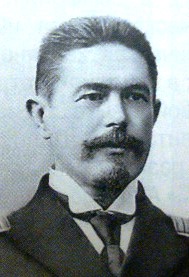Leonid Belskij 1888
The first Russian translation in the format of poetry became a classic.
The poetry translation into Russian of the New Kalevala by Lenoid Belskij, who was a docent at the University of Moscow and a poet, was published in 1888. Belskij’s translation gained well-earned attention when it was published and the Russian Academy of Science awarded it with the prestigious Puškin award. The translation came to have an exceptional long and honourable life span: even today, more than one hundred years later, it is the only correct Kalevala translation for many Russian admirers of the Kalevala.
In Lenoid Belskij’s opinion knowing the Kalevala was a prerequisite for writing a doctoral dissertation in the field of folk poetry. There was no complete Russian translation, and therefore, he started to translate the Kalevala himself.
The epic Kalevala by Leonid Belskij
Eino Karhu has written about the Russian translation of the Kalevala by Lenoid Belskij as follows:
“Belskij’s translation is, by no means, completely perfect – I do not think there are such translations – but it has its own indisputable and substantially good points. Its most important aspect is that Belskij has managed to convey the special epic intonation, an ancient style which can be found in the Kalevala. Belskij has attempted at poetry himself, even though he did not become this great poet and not even an important writer of poetry. To some extent, this can be felt also in his translation of the Kalevala. Even after all the corrections there, still, are expressions in his translation that may seem ponderous. However, Belskij did a good job when adapting to the world of the Kalevala, due to patient efforts and labour. He managed to dive deep into its spirit and to convey this to the Russian reader. In the greatest parts, of which there are a lot in his translation, the Russian poem sounds exactly in the same way as the epic Kalevala poem: firmly and nobly, it has beautiful simplicity as well as high solemnity, tragedy and humour – in the same manner that we can find all this also in the original text.”
(Eino Karhu 1993: О переводах «Калевалы» в России. Н. Прушинской (под. ред.), «Калевала» – памятник мировой культуры.)
Henni Ilomäki: ”Kalevalan kääntämisestä” – Kalevala maailmalla. Helsinki: SKS. 2012.
Mirja Kemppinen ja Markku Nieminen: ”Rekonstruoidusta kansaneepoksesta Lönnrotin runoelmaksi – Kalevala Venäjällä” – Kalevala maailmalla. Helsinki: SKS. 2012.

